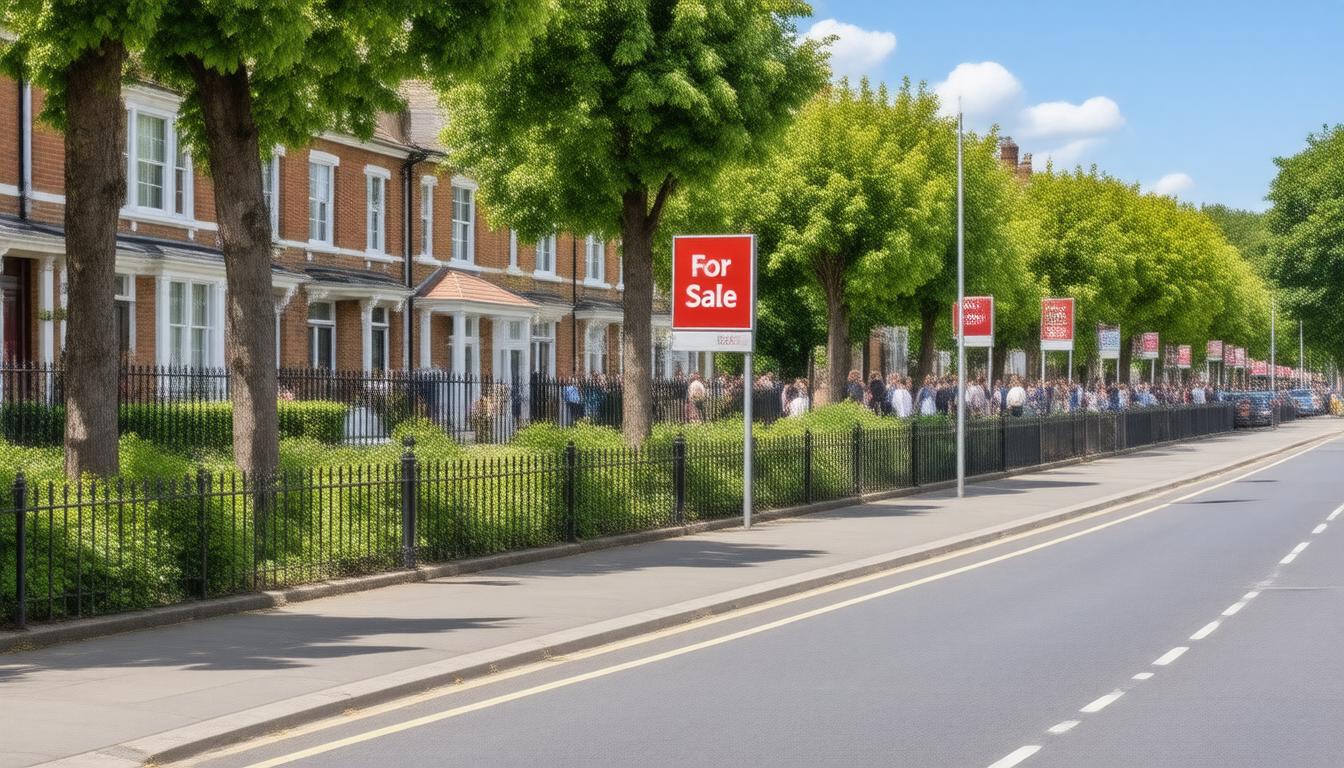The UK housing market is experiencing noteworthy activity, as reported by the latest Halifax house price index, which indicates a record average property price of £299,138—signifying a
0.7% increase from the previous month and a 3% rise year-on-year. This upward trend is particularly pronounced in northern regions of the UK, showcasing a regional shift in property value dynamics. The recent decision by the Bank of England to reduce its base interest rate by 25 basis points to
4.5%, the lowest it has been in 18 months, has further bolstered buyer confidence by making mortgage options more affordable. Together, these factors are fostering a positive outlook for potential homebuyers and revitalizing property transactions in the UK. As household earnings are projected to exceed inflation rates, easing financial pressures on buyers, many first-time buyers are rushing to finalize their purchases before the introduction of new stamp duty thresholds planned for April
1.
Key Takeaways
- The average property price in the UK has reached a record high of £299,138, showing steady growth in the housing market.
- Lower interest rates from the Bank of England have improved affordability for buyers, further boosting market confidence.
- Increased household earnings relative to inflation are attracting more first-time buyers before upcoming changes to stamp duty thresholds.
Current Trends in the UK Housing Market
The UK housing market continues to demonstrate resilience as the latest Halifax house price index indicates a record average property price of £299,138, marking a
0.7% increase from the previous month and a solid 3% rise compared to the same period last year. This trend is significantly influenced by buoyant conditions in the northern regions of the country. The positive outlook has been further supported by the Bank of England’s recent decision to reduce its base interest rate by 25 basis points, bringing it down to
4.5%—the lowest level seen in the last 18 months. This adjustment has contributed to improved affordability for buyers by lowering mortgage rates, ultimately sustaining investor confidence and stimulating property transactions across the market. As household earnings are projected to outpace inflation, it is anticipated that financial pressures on buyers will ease, generating increased interest, particularly among first-time buyers eager to secure homes before the new stamp duty thresholds take effect on April
1.
Impact of Interest Rates on Buyer Confidence
The interplay between interest rates and buyer confidence has become increasingly pronounced as market dynamics evolve. With the recent 25 basis point decrease in the Bank of England’s base rate to
4.5%, many analysts believe that this will catalyze a more robust recovery in the housing sector, particularly as potential buyers are encouraged by lower mortgage rates (Shaw, 2024). Furthermore, this reduction in borrowing costs comes at a pivotal time, as rising household incomes are expected to alleviate some financial pressures, thus motivating first-time buyers to make their moves. This optimism is further bolstered by historic affordability metrics indicating that even amid rising prices, buyer sentiment remains strong and resilient, especially in northern England where average property prices have seen considerable appreciation (Jones, 2024). As the April 1 cut-off for new stamp duty thresholds approaches, urgency among buyers could drive transaction volumes higher in the coming months.





